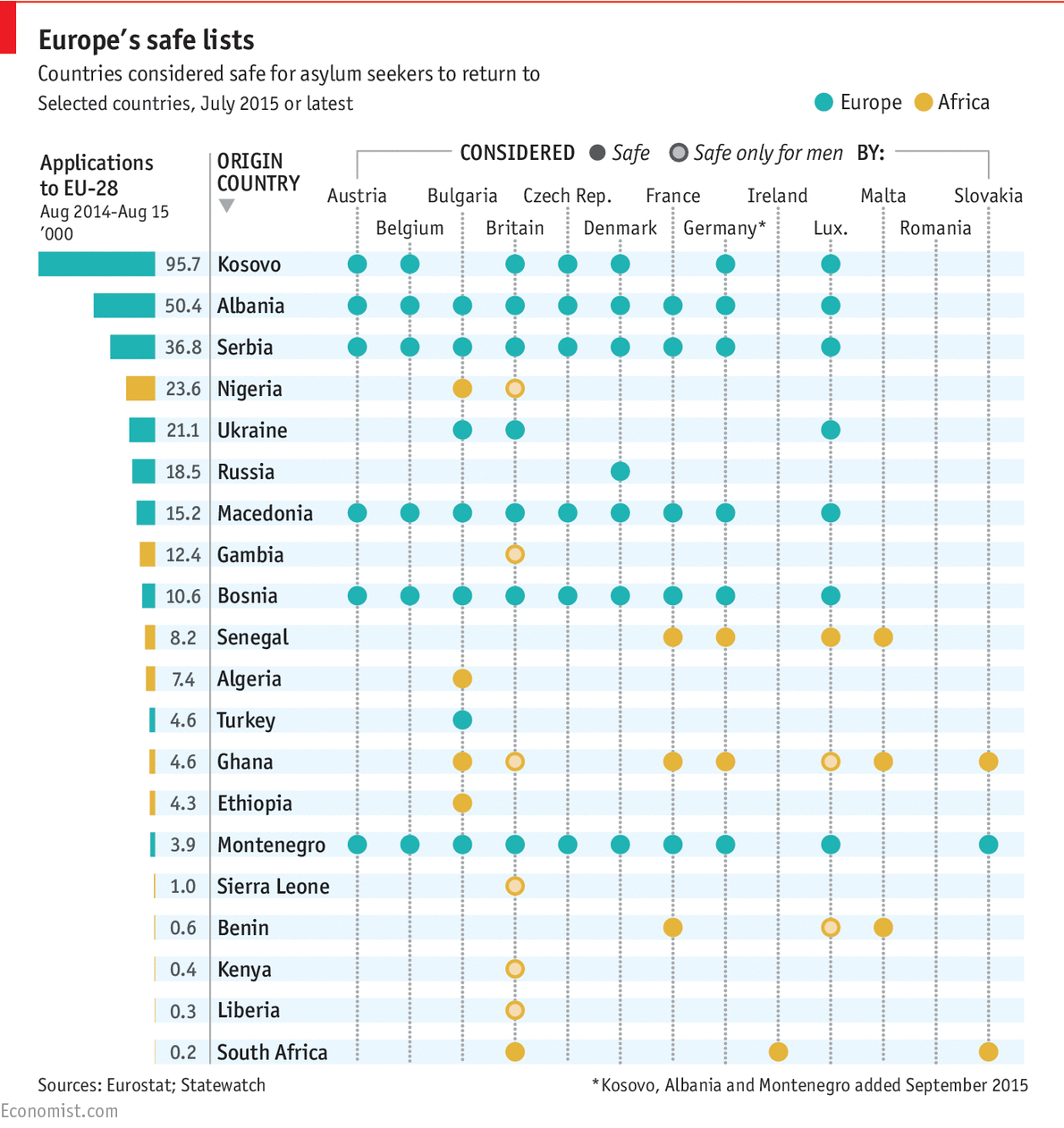This, the thinking goes, would speed up asylum processing and dissuade purely economic migrants. The European Commission has proposed adding all western Balkans states and Turkey to member states’ lists of safe countries. Some of this makes sense: Balkan states tend to have asylum recognition rates of less than 5% across western Europe and account for around 20% of the applicants. In the past 12 months however, around a quarter of Turkey’s asylum seekers to the EU were accepted, suggesting parts of its population have legitimate claims for protection (possibly the Kurds), though they make up a small share of overall claims.
The European Union’s safe lists are certainly in need of harmonisation. At the moment Kosovo, one of the biggest sources of asylum applications, is considered safe by Belgium but not by Bulgaria. Britain’s list contains war-ravaged Ukraine whereas most other member states’ lists do not, and it is almost alone in designating a handful of African countries as only safe for men because of concerns about female genital mutilation. Italy and Greece—two of the biggest points of entry for migrants into the EU—don't keep safe lists at all according to the European Asylum Support Office. Besides, the composition of such lists is not to everyone’s tastes. NGOs complain that human rights in some western Balkans countries are far from perfect. And earlier this year Canada’s federal court ruled against against the denial of appeals for its safe list. Broad-brush policies that treat an entire country as one homogeneous mass are open to criticism, but the EU needs to do something to lighten the pressure on its asylum system.


Δεν υπάρχουν σχόλια:
Δημοσίευση σχολίου